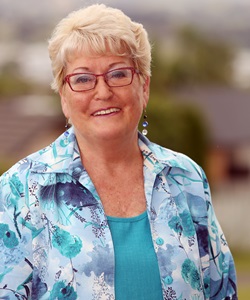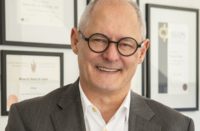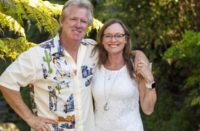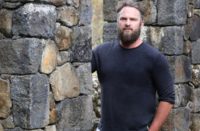 In the New Year Honours list, Auckland’s Dianne Glenn, teacher, JP, women’s rights campaigner and an entrepreneur with many local, national and international strings to her community bow, was made an officer of the New Zealand Order of Merit for service to disabled women and the environment.
In the New Year Honours list, Auckland’s Dianne Glenn, teacher, JP, women’s rights campaigner and an entrepreneur with many local, national and international strings to her community bow, was made an officer of the New Zealand Order of Merit for service to disabled women and the environment.
– When and why did you join BPW (New Zealand Federation of Business and Professional Women) and is the organisation still relevant?
I became very aware of discrimination against women during my teaching career. Two principals told me my main role in life was to be a wife and mother therefore I was not suitable for promotion to a senior role ruling out being a head of department with an accompanying pay increase. Yet, I took fewer days off and worked longer hours than most. Gender discrimination was rife and is still a hot topic.
Coming from a farming family, it was also the boys who traditionally inherited the land and/or business. My father began gifting the farm to my brothers when they were in their 20s.
This discrimination drove me to look for an organisation that would help stop this behaviour. I saw an advertisement seeking women keen to establish a Business and Professional Women’s club – an organisation that would help advance equal opportunities for women and advocate against inequities. I attended the meeting and was elected to the establishment committee. I became vice president at the first AGM in 1984 and was president, 1985-87.
BPW is still very relevant today but has become focused on high level advocacy – equal pay for equal work, pay equity, promotion of women into leadership, women directors/on boards and more.
– During your teaching career did you see yourself as a role model for students?
I trained as a home economics teacher, but also taught general science and biology. I later retrained extra-murally in order to teach art, crafts and art history. I resigned from full time teaching in 1993 as I was very involved with Business and Professional Women. However, for 13 years I managed Adult Community Education, the flexible hours allowing me to carry on with my BPW NZ work.
I didn’t really see myself as a role model but I did spend a lot of time with pupils, girls in particular, advising them on personal and social behaviour and encouraging them to be the best that they could be academically.
Was becoming active in NCW (National Council of Women NZ) – beyond BPW being a member organisation – a natural progression?
I started my association with National Council of Women NZ when I represented BPW during three years as president. I didn’t take a personal role in NCW until I had completed my national and international BPW roles, then represented BPW Franklin [in southern Auckland] at the Papakura/ Franklin Branch of NCW.
I didn’t commit to a leadership role until I was no longer an Auckland Regional Councillor but then became president in 2013. At that time I was serving on the Counties Manukau District Health Board and led the three Auckland-based NCW branches into submitting wide-reaching remits relating to women’s health. In 2014 I was elected one of two vice presidents of NCWNZ, a position I still hold.
– What has prompted your strong interest in furthering the rights of women?
My difficulty in gaining leadership roles in my employment, namely gender discrimination. We need to address gender equality – more leadership and decision-making opportunities for women, including in governance, on boards and in government, more women in senior management roles including as CEOs, and the big one, pay equity.
– Are there issues raised by NCW with which you have a personal affinity?
When attending a World Conference on Women, in Beijing, in 1995, I developed a personal affinity for United Nations mechanisms and the need for Governments to implement them. The Beijing Platform for Action adopted in China, has provided a focus for actions to advance the status of women. The other mechanism on which I still focus is the Convention on the Elimination of all forms of Discrimination Against Women (CEDAW). This has led to a various national and international actions.
– How do you juggle your BPW and NCW commitments?
It is a matter of prioritising. My role within BPW is mainly a mentoring one and taking part in dinner meetings, conferences and other events such as leadership training. I have just drafted a policy resolution for the BPW NZ annual meeting in April, on ensuring that women with disabilities are included in the upcoming pay equity working parties discussion and solutions.
NCW takes more of my time, mainly working from home, but also attending a board meeting in Wellington every second month. I am Board Liaison member for the Environment and Health Standing Committees, advising and assisting with submissions to Parliamentary Select Committees and I am Board Liaison member for three branches – Manukau, Papakura/Franklin and Hamilton. In the past year, as a Board, we have produced a white paper on a Gender Equality Strategy, and a Strategic Action Plan providing a new Vision and Mission that brings NCWNZ into the modern world.
– You are a former Auckland Regional Councillor and a member of the Auckland Conservation Board. What are you working on now?
I am the Liaison Board member for the Environment Standing Committee and have been advising on water conservation and the emission trading scheme. Previously I was a corresponding member of this committee when I was involved in developing policy and making submissions on the modern methodology of extracting oil and gas. Now I am generally more involved in health than environment issues.
– Has your work with disabled women mostly been through involvement with Ambury Park and Riding for the Disabled? How committed are you to this work?
I have a quadriplegic sister and soon realised, as deputy chair of the Auckland Regional Parks, how difficult it was for her and others with disabilities and limited mobility (eg parents with babies in buggies), to access our parks and have a wonderful experience – even getting to a toilet was difficult.
After visits, we understood how big a task it was to find out which ones were accessible – or not. I initiated a budget to have all regional parks audited for accessibility, leading to several being upgraded. Because of my background in education, as well as my advocacy, I was appointed to Ambury Park Board of Trustees and after 11 years was made a life member.
Advocacy for people with limited mobility led me into other areas such as public transport, resource management and planning.
– If you could be Minister for Women for a day what would be the first thing you would do and why?
Announce a National Plan of Action for Women to be re-established. The UN CEDAW Monitoring Committee has persistently recommended that the Ministry for Women develop a new one under gender equality and remove discrimination against women.
– If you could ask any three influential women (dead or alive) to dinner who would they be?
Kate Sheppard – Suffragist , and founder of the NCW NZ; Dame Silvia Cartwright – 18th Governor General of NZ but previously Chair of the UN CEDAW Monitoring Committee and currently a member of the UN Human Rights Council appointed to investigate various war crimes; Helen Clark, 37th Prime Minister of NZ and currently third highest ranked UN official as Administrator of the UN Development Programme and could be the next UN Secretary General. What a mix!



